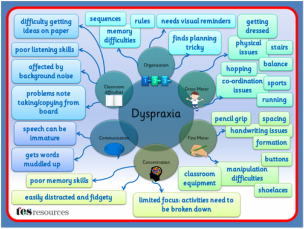Assessments
All assessments are validated and approved by the Joint Council for Qualifications (JCQ) and the SpLD Assessment Standards Committee
They are nationally recognised and the clearly state the diagnosis and recommendations for moving forwards in school, Further and Higher Education or in the workplace.

Full Dyslexia Assessment (Age 8+)
Having an full diagnostic dyslexia assessment is the first step to ensuring that the dyslexic person receives the correct specialist support, strategies and interventions that they need to succeed and to make progress. It also helps the dyslexic person have a clearer understanding of how they learn best, which promotes self-confidence.
The full assessment usually takes approximately 2.5 hours to complete. It consists of a series of tests to measure current level of reading, spelling and handwriting, phonological memory, phonological awareness, speed of processing and visual and verbal ability. Any observations regarding learning style and problem solving skills are noted.
A thorough, detailed written report will be emailed to you ideally within one week of the assessment followed by a feedback consultation. You will have confirmation of the diagnosis with supporting evidence. Areas of strength and weakness, along with the impact in an educational setting or workplace will be fully explained.
Recommendations for school/college support, study support or support in your workplace are clearly stated. If relevant, recommendations for exam concessions, such as extra time, a reader or scribe, will also form part of the report. The assessment may highlight signs of other specific learning difficulties, such as ADHD, Dyspraxia or Irlen Syndrome (Visual Stress). These will be discussed in the report, with recommendations for further action.
For employees, the report will detail 'reasonable adjustments' to be made in the workplace. The assessment will support an application for Access to Work.
If required, the relevant JCQ paperwork can be completed, in liaison with the school or college, for the application of exam access arrangements.
A thorough, detailed written report will be emailed to you ideally within one week of the assessment followed by a feedback consultation. You will have confirmation of the diagnosis with supporting evidence. Areas of strength and weakness, along with the impact in an educational setting or workplace will be fully explained.
Recommendations for school/college support, study support or support in your workplace are clearly stated. If relevant, recommendations for exam concessions, such as extra time, a reader or scribe, will also form part of the report. The assessment may highlight signs of other specific learning difficulties, such as ADHD, Dyspraxia or Irlen Syndrome (Visual Stress). These will be discussed in the report, with recommendations for further action.
For employees, the report will detail 'reasonable adjustments' to be made in the workplace. The assessment will support an application for Access to Work.
If required, the relevant JCQ paperwork can be completed, in liaison with the school or college, for the application of exam access arrangements.
Specialist Assessors are qualified to diagnose dyspraxia for educational purposes, for individuals over the age of 16. In addition to carrying out a series of tests to measure underlying ability and cognitive ability, tests to determine visual perception and motor-coordination form part of the overall assessment. A detailed case history is undertaken to establish a thorough understanding of the individual's past and present difficulties.
Adults with dyspraxia tend not to display the motor coordination problems which would have been obvious in childhood. The difficulties in adults are related to neuro-cognitive aspects of dyspraxia. These can include general difficulties with sequencing and structuring information, which can create problems with writing essays or reports, organisation, time keeping, slow speed of processing information, short term memory problems and social skills. The extent to which a person exhibits the different characteristics of dyspraxia, will vary from person to person.
Though a diagnosis in childhood is the ideal, diagnosis in adulthood is beneficial in helping you make sense of your behaviour. It can help reduce stress, anxiety and provide you with effective strategies to cope more efficiently in education, home or the workplace.
A dyspraxia assessment usually takes approximately 3 hours to complete.
For employees, the report will detail 'reasonable adjustments' to be made in the workplace. . The assessment will support an application for Access to Work.
If required, the relevant JCQ paperwork can be completed, in liaison with the school or college, for the application of exam access arrangements.

Full Diagnostic Assessment to Apply for Disabled Students' Allowance (DSA)
The Disabled Students' Allowance is a Government grant for which all UK students with a disability (including Dyslexia and Dyspraxia) studying at Higher Education can apply. DSA supports the costs associated with the disability, such as equipment and tutoring.
A full diagnostic assessment, completed after your 16th birthday, by a Specialist Assessor holding a current Assessment Practicing Certificate, supports the application for DSA as it is accepted as evidence of a specific learning difficulty, whether this be dyslexia, dyspraxia or dyscalculia.
The report uses the format and tests recommended in accordance with DfES and SASC Guidelines. If appropriate, recommendations for exam concessions are included.
This assessment usually takes approximately 2.5 hours to complete.

